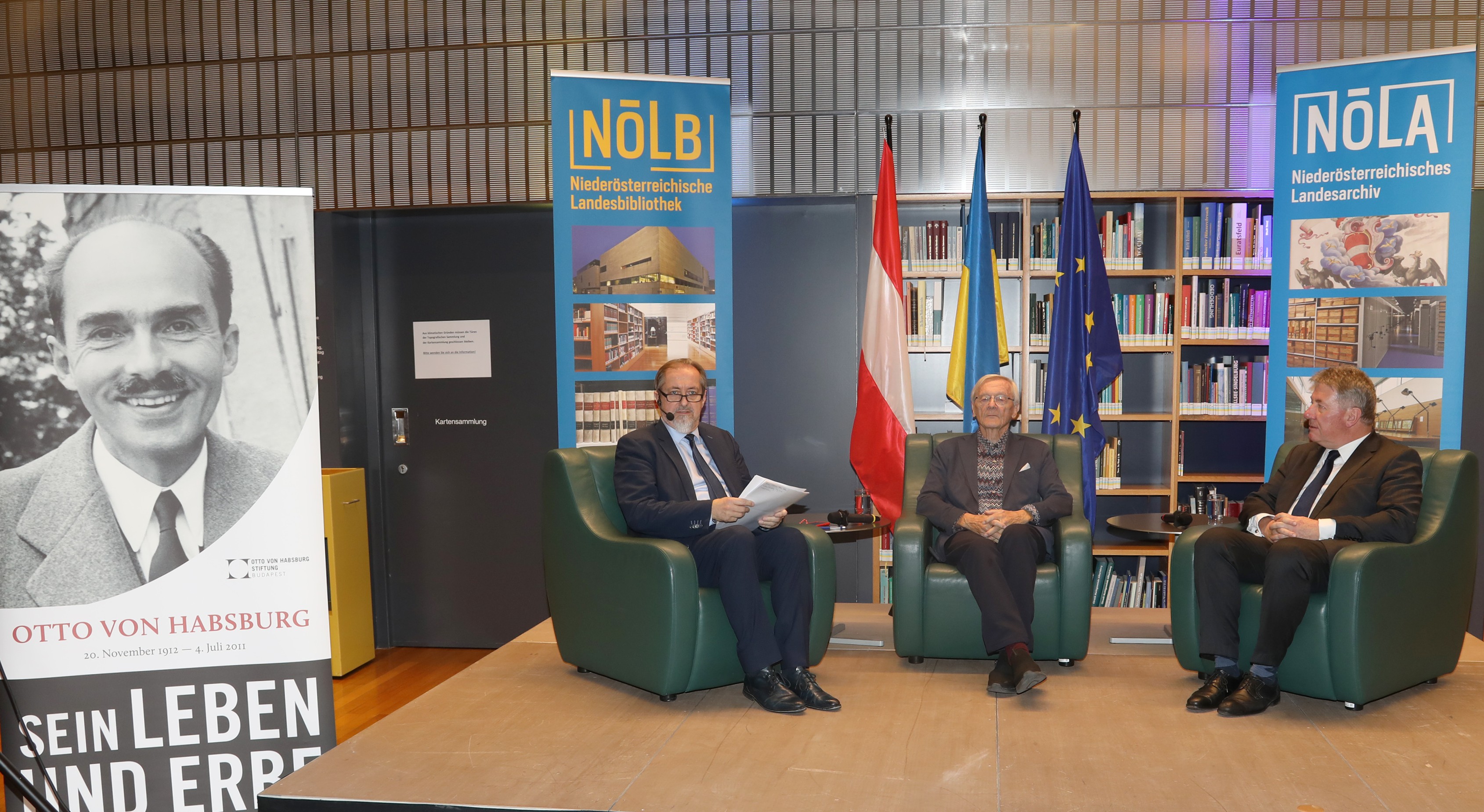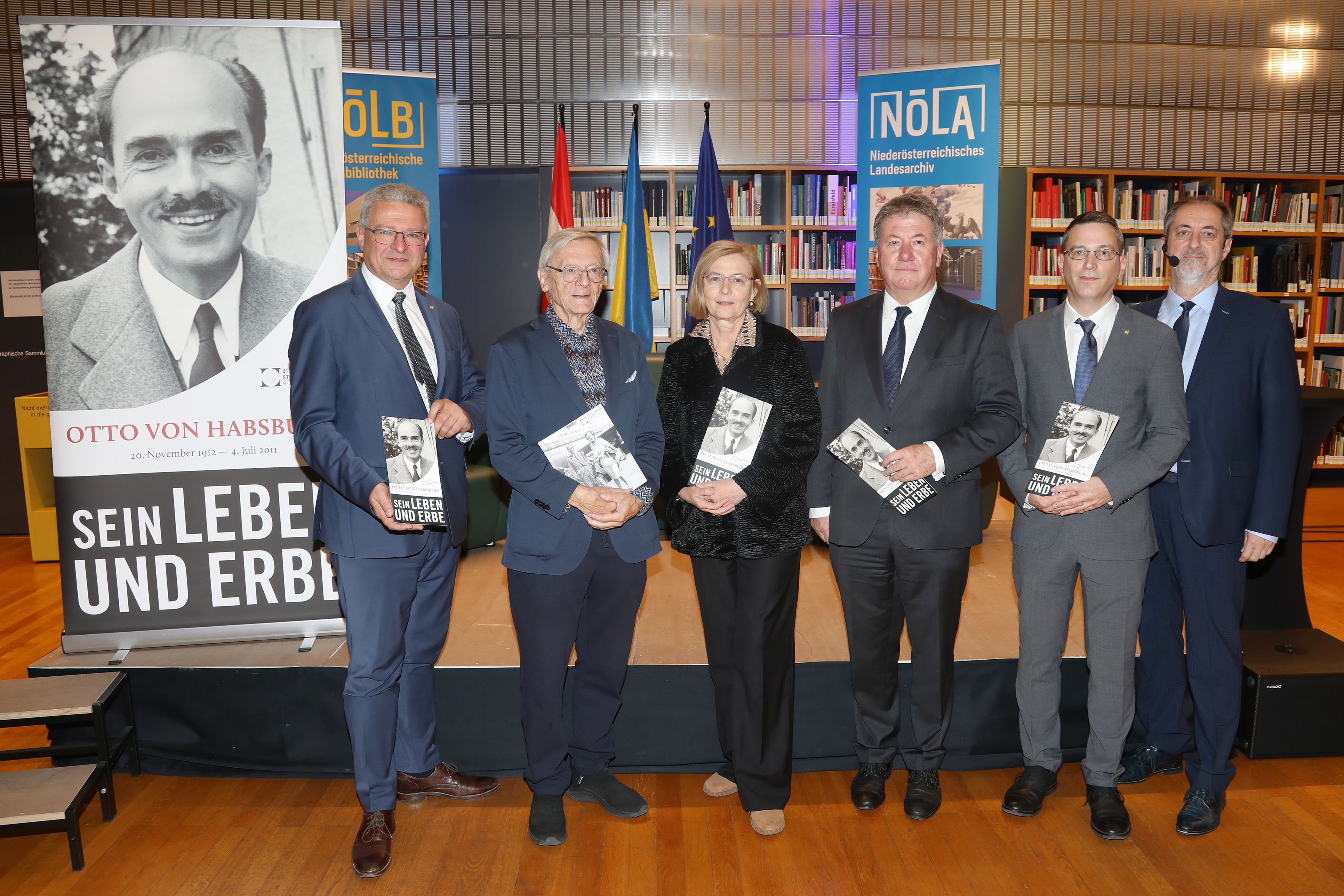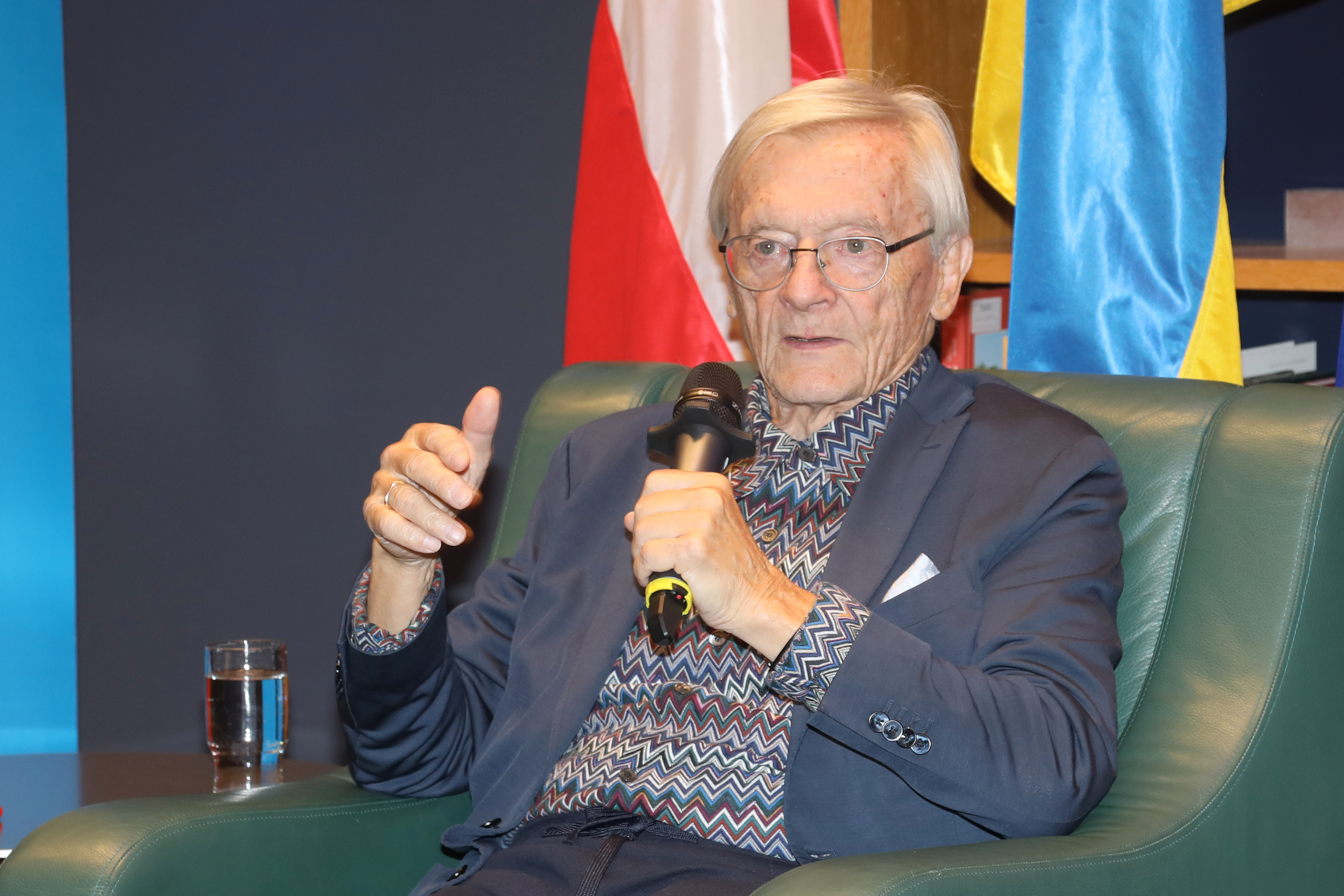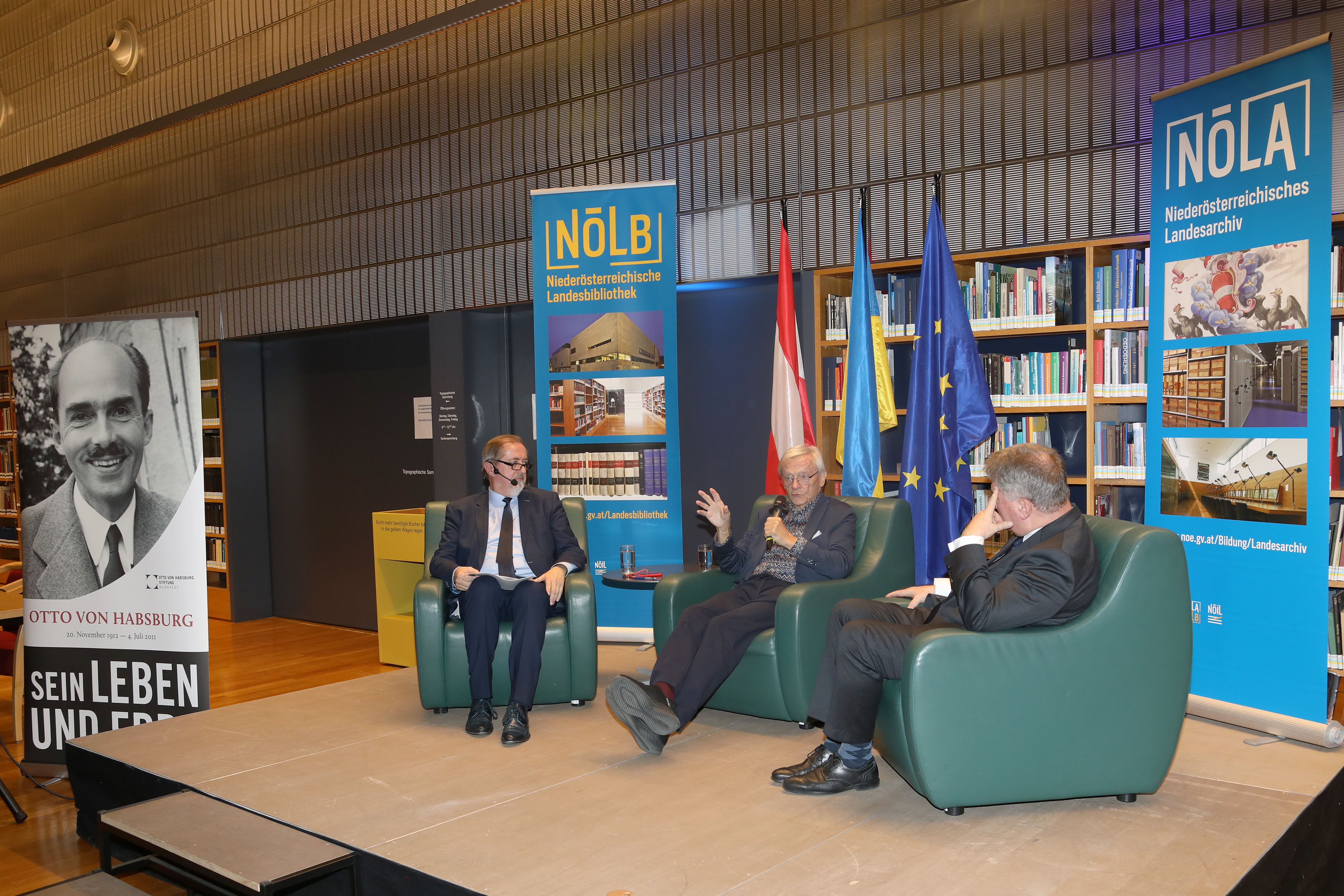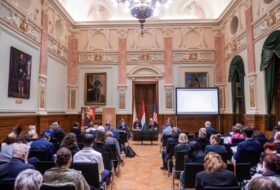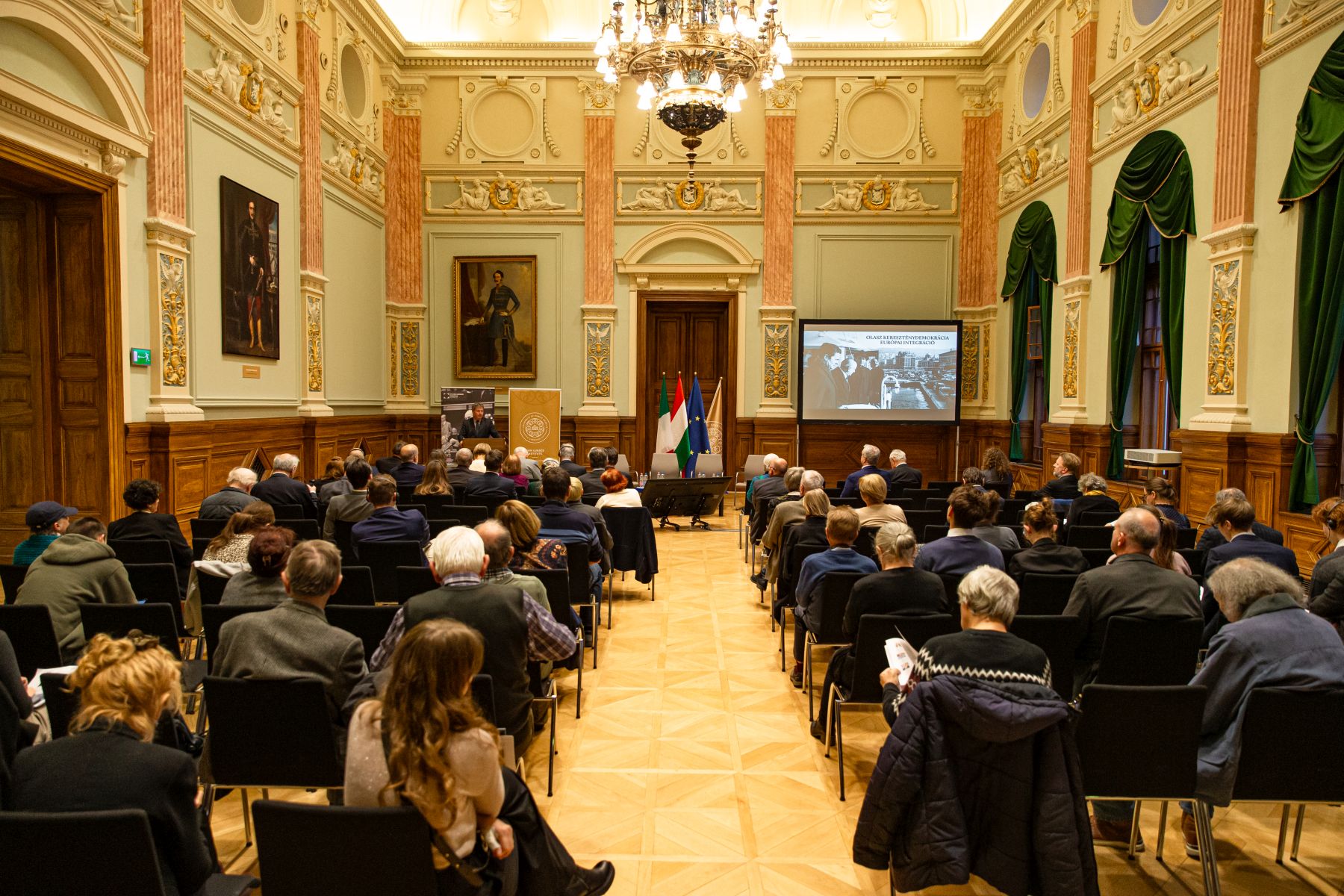Following our initial engagement in St. Pölten in March 2025 and the subsequent forum held in Göttweig in June, a second joint event between the Cultural Department of the Provincial Government of Lower Austria and our Foundation took place on 4 November. This time, the conference was hosted in the contemporary building of the Provincial Library, under the title “Otto von Habsburg – A Statesman for European Integration”, featuring former Austrian Federal Chancellor Wolfgang Schüssel; journalist and President of the Lower Austrian Cultural Senate Reinhard Linke; and Gergely Prőhle, Director of our Foundation.
The discussion marked the thirtieth anniversary of Austria’s accession to the European Union. However, as Roman Zehetmayer noted in his opening remarks, it was also an opportunity to reflect on two other prominent anniversaries – eighty years since the end of the Second World War and seventy years since the signing of the Austrian State Treaty – providing a broader perspective on twentieth-century history. Otto von Habsburg played an active part in these developments, and his commitment to democratic Austria deserves due recognition – as emphasised by Herrmann Dikowitsch, Head of the Cultural Department of the Lower Austrian Provincial Government, speaking on behalf of the Governor. Welcoming Edit Szilágyiné Bátorfi, Hungary’s Ambassador in Vienna, he also underlined the depth and complexity of relations between the province and Hungary. As he remarked, Otto von Habsburg, born in Reichenau, was a “child of Lower Austria”, and the province itself remains closely interwoven with the Habsburg heritage.
In his introduction, Reinhard Linke outlined the origins of our Foundation, noting that Austria had also competed for custody of Otto von Habsburg’s estate. Yet, as this joint event demonstrates, what was once a sense of rivalry has evolved over the past few years into an excellent partnership.
Gergely Prőhle expressed his gratitude to Wolfgang Schüssel for accepting the invitation and recalled that when our Foundation revived the tradition of the “Otto Dinners” in autumn 2019, the former Chancellor was the keynote speaker at the inaugural event, held in the ceremonial hall of the Hungarian National Museum. As the Director noted, this gesture was intended to symbolise that our namesake is regarded as part of Hungarian history, while his legacy is also understood as a shared European inheritance – hence our cooperation with Austrian public collections. While we remain mindful of the historical significance of curating the written and intellectual heritage of the last Crown Prince of Hungary and Austria, our activities centre on Otto von Habsburg as a twentieth-century realist politician and a pivotal figure in European integration.
When asked about the contemporary relevance of Otto’s intellectual legacy, the Foundation’s Director highlighted his commitment to the principle of subsidiarity, enshrined in the Maastricht Treaty, and his vision of a functional, values-based Europe. He also emphasised that Otto von Habsburg understood the concept of a Christian Europe not as a political slogan, but as a moral compass guiding everyday actions. Wolfgang Schüssel praised Otto’s enduring curiosity, even in old age, and his remarkable ability to assess historical and political processes with long-term perspective and foresight.
Responding to a question about how democratic Austria perceives the intellectual heritage of its last Crown Prince today, the former Chancellor offered candid observations. He also recalled that it was he who proposed Karl von Habsburg’s nomination as a Member of the European Parliament for the Austrian People’s Party, a decision that resulted in father and son sitting “side by side” in the European Parliament for one term. As Foreign Minister, Schüssel and Otto von Habsburg frequently appeared together at events promoting Austria’s EU accession, and, during his tenure as Chancellor, he invited Otto and Regina von Habsburg to celebrate their golden wedding anniversary at Schönbrunn Palace in 2001. Schüssel also referred to the French resistance to EU enlargement in the early 1990s – a point to which Gergely Prőhle added that Jean-Louis Bourlanges, one of the leading figures of that opposition, shared similar memories during a recent visit to our Foundation, emphasising Otto’s unwavering stance on enlargement.
Our travelling exhibition “Otto von Habsburg – Life and Heritage” is open to visitors at the Reading Room of the Lower Austrian Provincial Library until 12 December.
